I came to Bangalore with no fixed agenda and no particular list of people to meet. I’m in sponge mode - I’m here to learn about the city, and if I’m lucky, to find a problem worth solving and some people I like.
As part of my trip preparation I did do a couple of twitter searches for “Bangalore”, followed a few people and sent out a few DMs. One of them was to a gentleman called @neeraj. Neeraj runs the Bangalore chapter of The Residency, an outfit I chanced upon in San Francisco on my last visit, but didn’t have time to explore.
The Residency is a “live-work hacker space” - it admits a cohort of five people every six months, gives each of them a room in a shared house, and they work on their startups all together in the living room. There’s an emphasis on building things to take into the real world, rather than just hacking. The founders actually propose this model as an alternative to college - I can’t say I totally disagree. They claim an impressive 57% success rate for alumni applications to Y-Combinator, versus 1% for the general population. They started with a house in San Francisco, and have now spread across the world, with branches in London, Berlin, Dubai, Cambridge (Mass.) and New York.
In short, these sounded like my kind of people. So I zapped Neeraj a DM to say hello, scored an invite, and rocked up at their place for their weekly demo showcase evening. This was only their fifth such presentation, because they started five weeks ago.
This is the room they all work in every day - reminds me of my earliest days at UVA. Nothing quite replicates that hot-house atmosphere:
While the others set up their presentations, Neeraj showed me round the house, including their rather lovely terrace looking out onto the evening Bangalore skyline.
Then we went back downstairs and they put me on the spot - turned out they were just as curious about me as I was about them. After all, I’d been on the journey they were all now commencing, and lived to tell the tale (maybe not to conquer Silicon Valley just yet, but that’s all yet to come). What we had in common was that at some point, we’d all found the courage to leave the relative safety of traditional jobs and make a leap into the unknown, choosing NOW rather than later.
I sort of wished I’d brought my laptop with me, but in a way it was good that I didn’t - there’s something purer about just waving your hands in the air and trying to explain your somewhat random story without rehearsal.
What I loved is that they were young enough not to have heard of U2, which usually elicits gasps of appreciation from an audience. Not this crew. Taylor Swift, on the other hand - now that got a response. But I told them the whole story blow-by-blow, from my spare bedroom all the way to the Super Bowl, including all the gnarly private equity stuff that happened afterwards (in fact, that was the stuff they were really interested in - this generation knows where to find the butter on a slice of bread).
talkabout
Then it was presentation time.
First up was Sanjay, a Dehradun export to Bangalore, with a search engine optimisation tool that already has 120 users, and has grossed $4500 since he started working on it (five weeks ago at time of writing).
Next were Pulkit and Bhavya, who’d quit their jobs at Bain and Co. to work on an AI-based consultative salesperson to increase conversion rate. In English, this means when you go to a shopping website, you can ask questions to an AI agent to find what you need, so more people actually end up buying something. They were celebrating their first paying customer, a company making transdermal patches.
Then was Vikranth, a designer by trade, presenting his ideas for MuseMap, a recommendation engine based on the people who inspire you (as in, what would Einstein or George Clooney be reading or watching right now).
And finally Nilesh, a Yale graduate (and soon to be professor there) showing his work on a play-based learning tool for people interested in physics.
Then Neeraj did an overview about the Residency itself (since he is the guy who runs the Bangalore chapter, and links up with the mothership in San Francisco). He’s definitely working on something, but he chose not to present about it here.
There followed a lively and free-ranging conversation over tea and biscuits. Also present was Srikanth Prabhu, another external visitor. Srikanth is from the investor community, and has just quit his job at Qapita (an investment firm in Bangalore) to create a new startup, in stealth mode.
walkabout
Srikanth invited me to a group walk the following Saturday morning. Twice around Agara Lake, a place lots of people to go for their morning walks, jogs, star-jumps and stretches.
Another great group of people! We went round and introduced ourselves and what we were up to. I explained my back story and the somewhat quixotic nature of my quest, and I could tell I was in the right place by the reaction. Not skepticism, amusement or ridicule, but matter-of-fact acceptance. Same as in Palo Alto, actually.
The rest of the group were also engaged in a variety of quests, including a guy called Karthik Devarasetti, who’s working on next-generation technologies for sorting and processing plastic waste post collection. Standing next to him was Suren Sucharia, who’s a principal at a company called Dhiway, working on trust networks.
Karthik and Suren were the people I chatted to most of the way round the lake. Karthik is connected into a network of companies and organisations who are all interested in the field of sustainability and environmental protection, and far from poo-pooing my drone project idea, he was supportive and encouraging. Suren’s project, meanwhile, looks at creating systems by which you can establish the authenticity of documents and data, such as educational qualifications, and is working with such lumenaries as Nandan Nilekani (so maybe I’ll get that Infosys tour after all!). Turns out there’s a deep connection with the work I’m doing (more of which later).
Queen Elizabeth II was known for her habit of walking while talking, and she was definitely on to something. While walking, you’re facing the same way instead of facing each other, and embarking on a common task (walking in the same direction) as you discuss whatever it is you’re discussing. This has a subtle disarming effect; it turns a potentially combative conversation into a collaborative exploration, of the physical environment around you, as well as of the philosophical terrain.
Almost before we realised it, the two circuits were over, and we repaired to a local South Indian fast-food dosa joint for some breakfast.
This is exactly the kind of place that I’d never have found on my own - you need local knowledge to know where to go.
Best dosa of the trip.





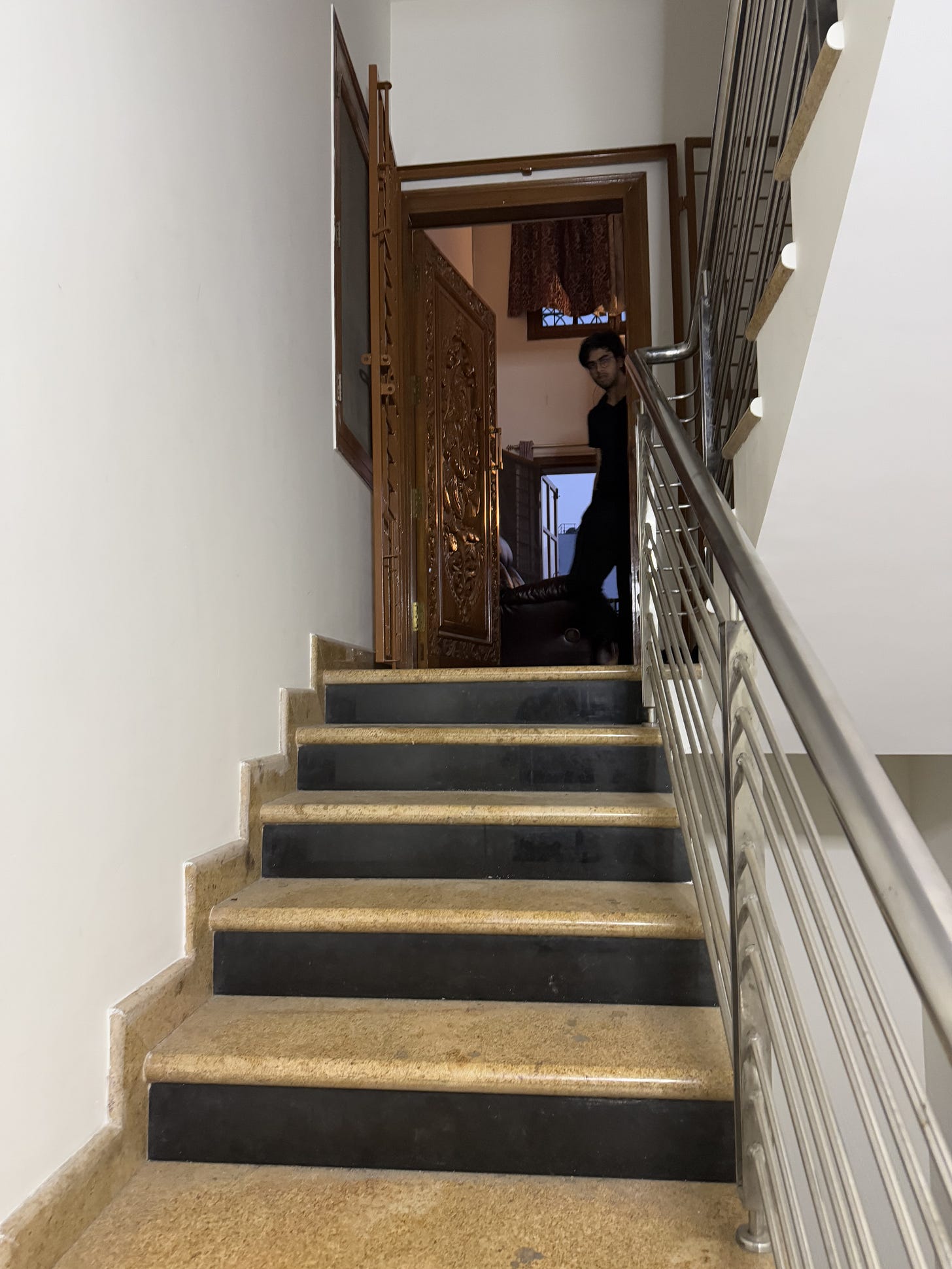
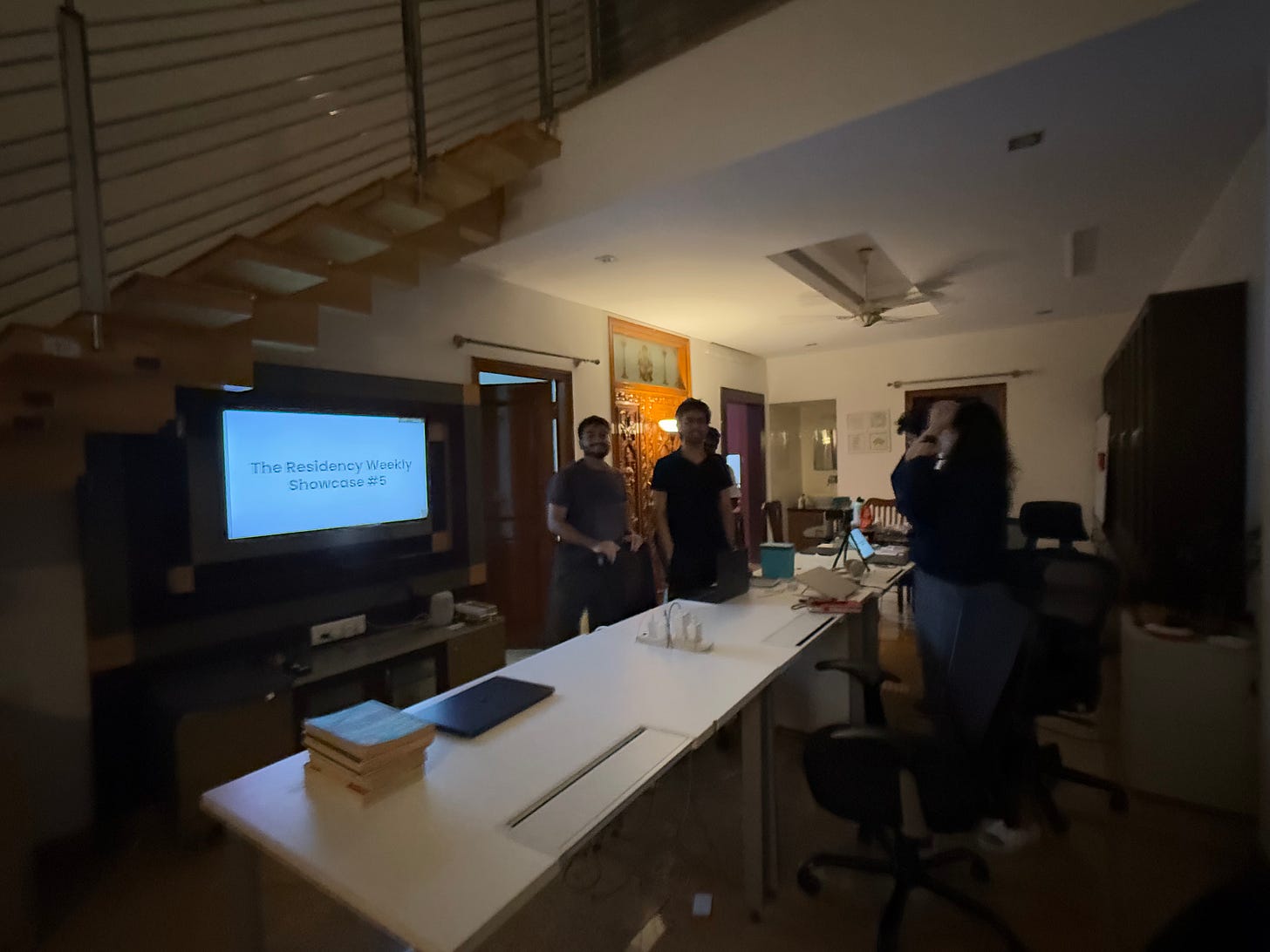
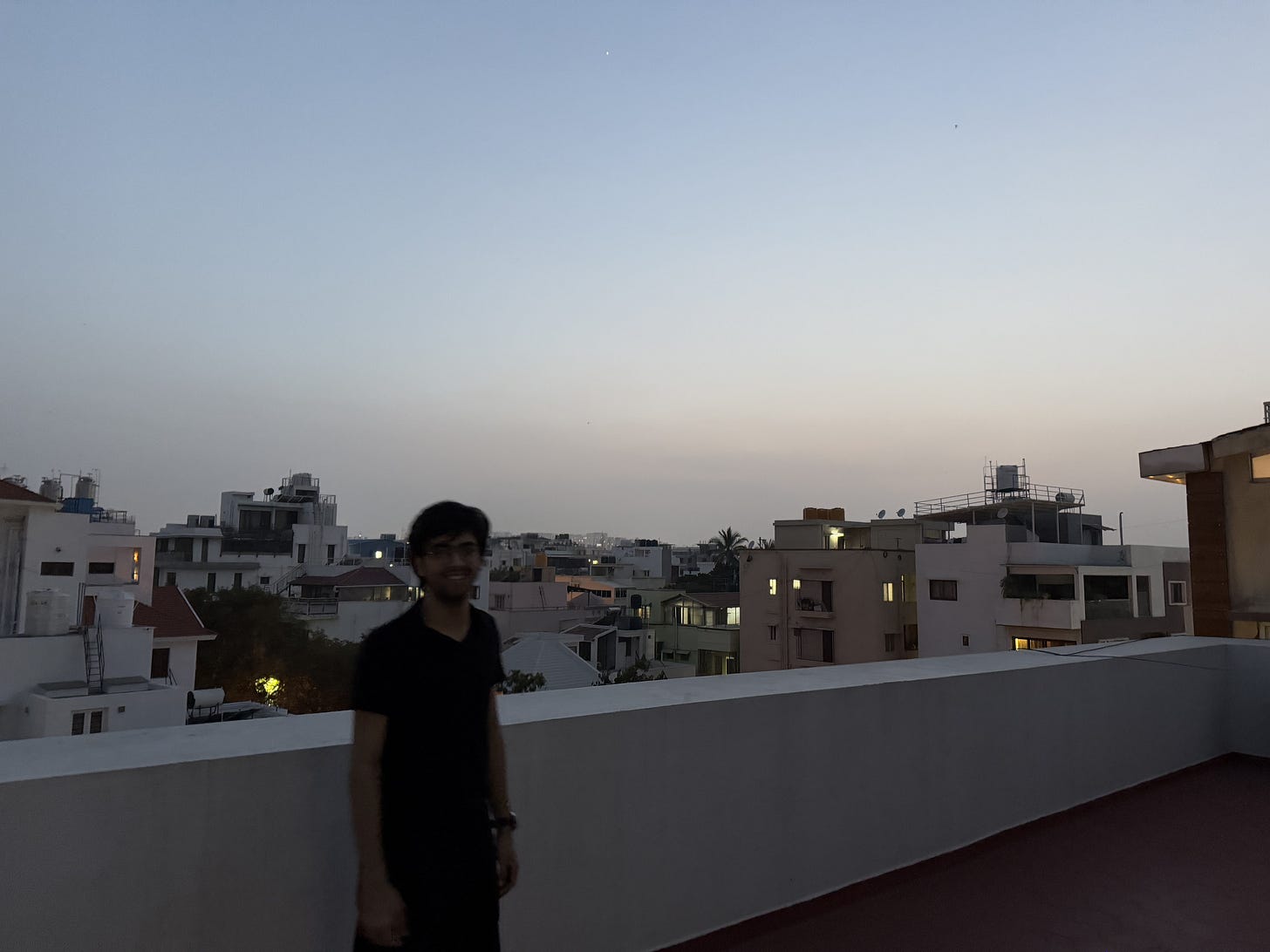


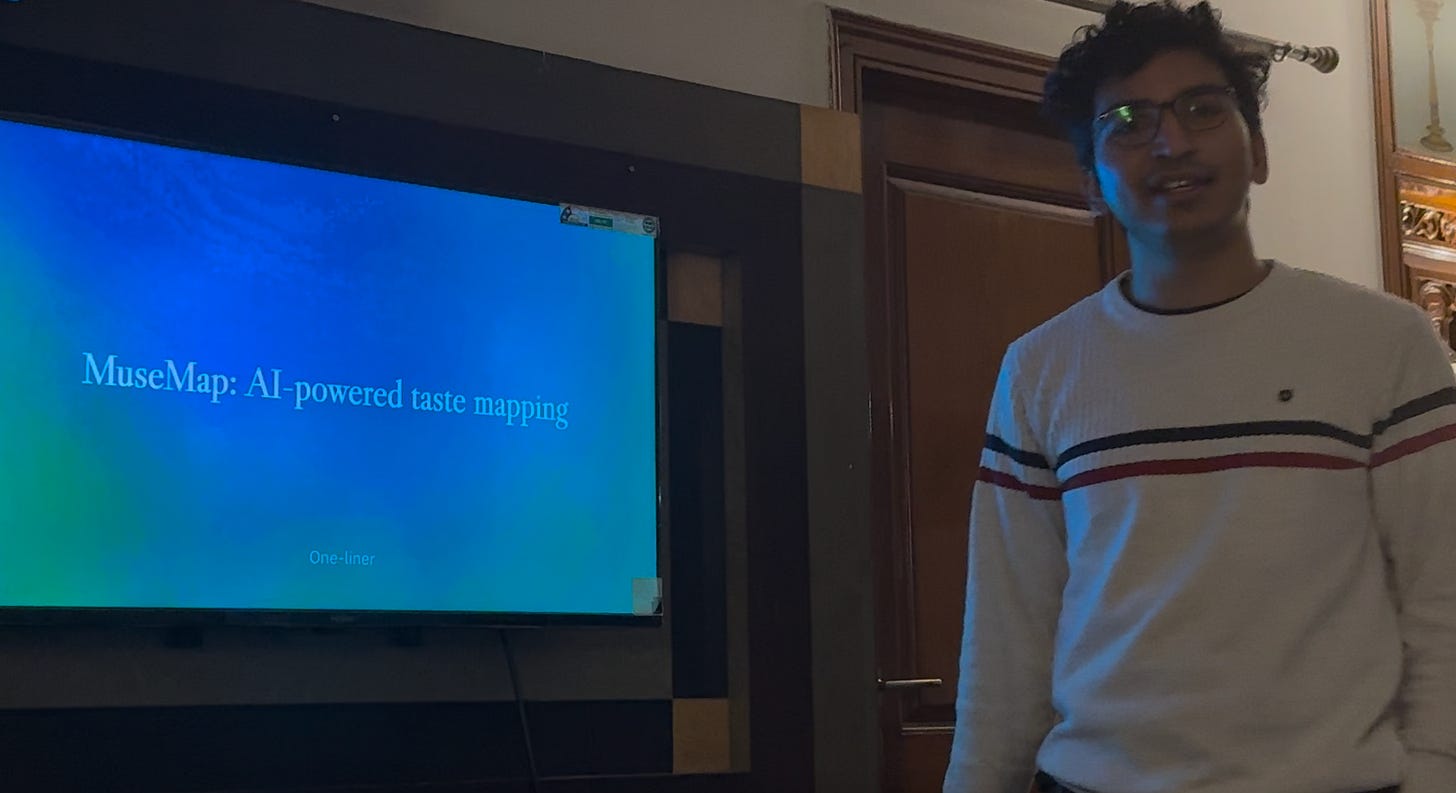
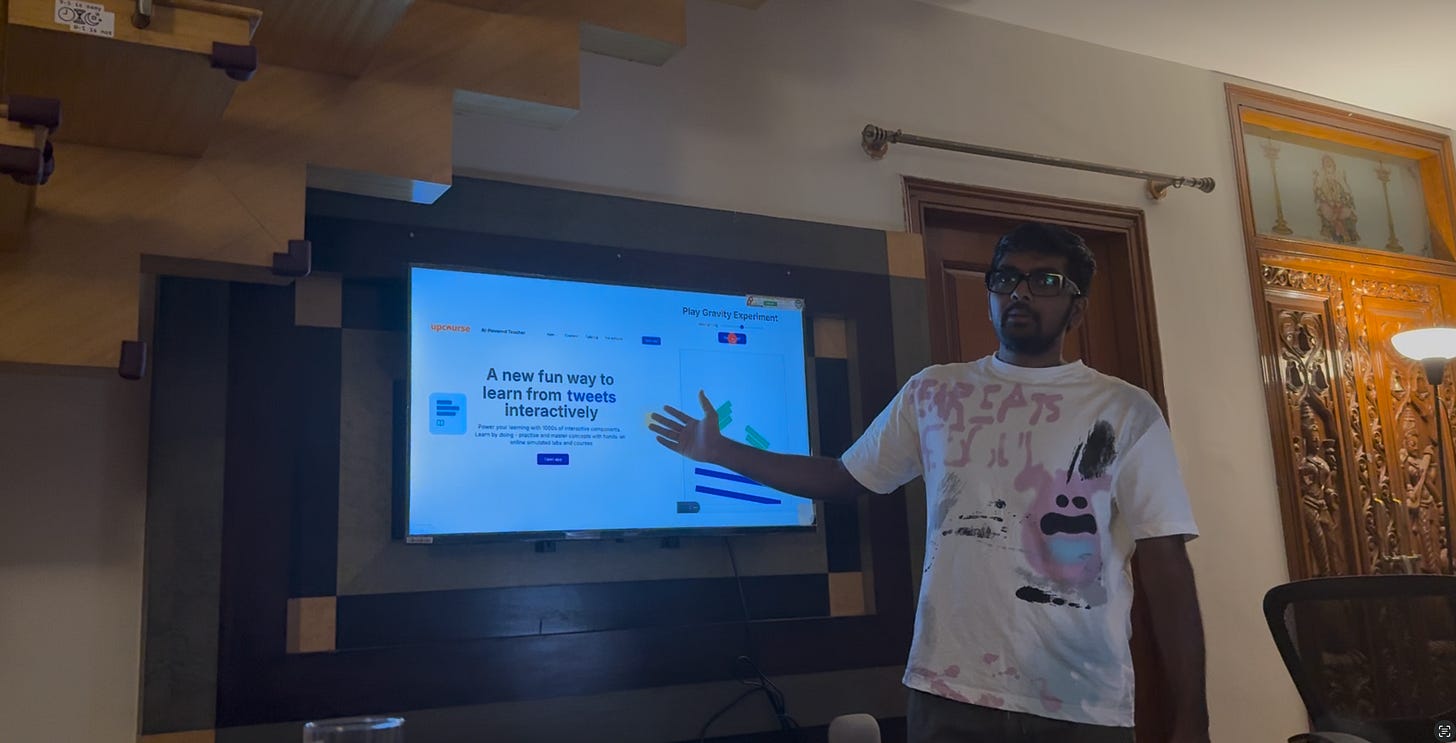


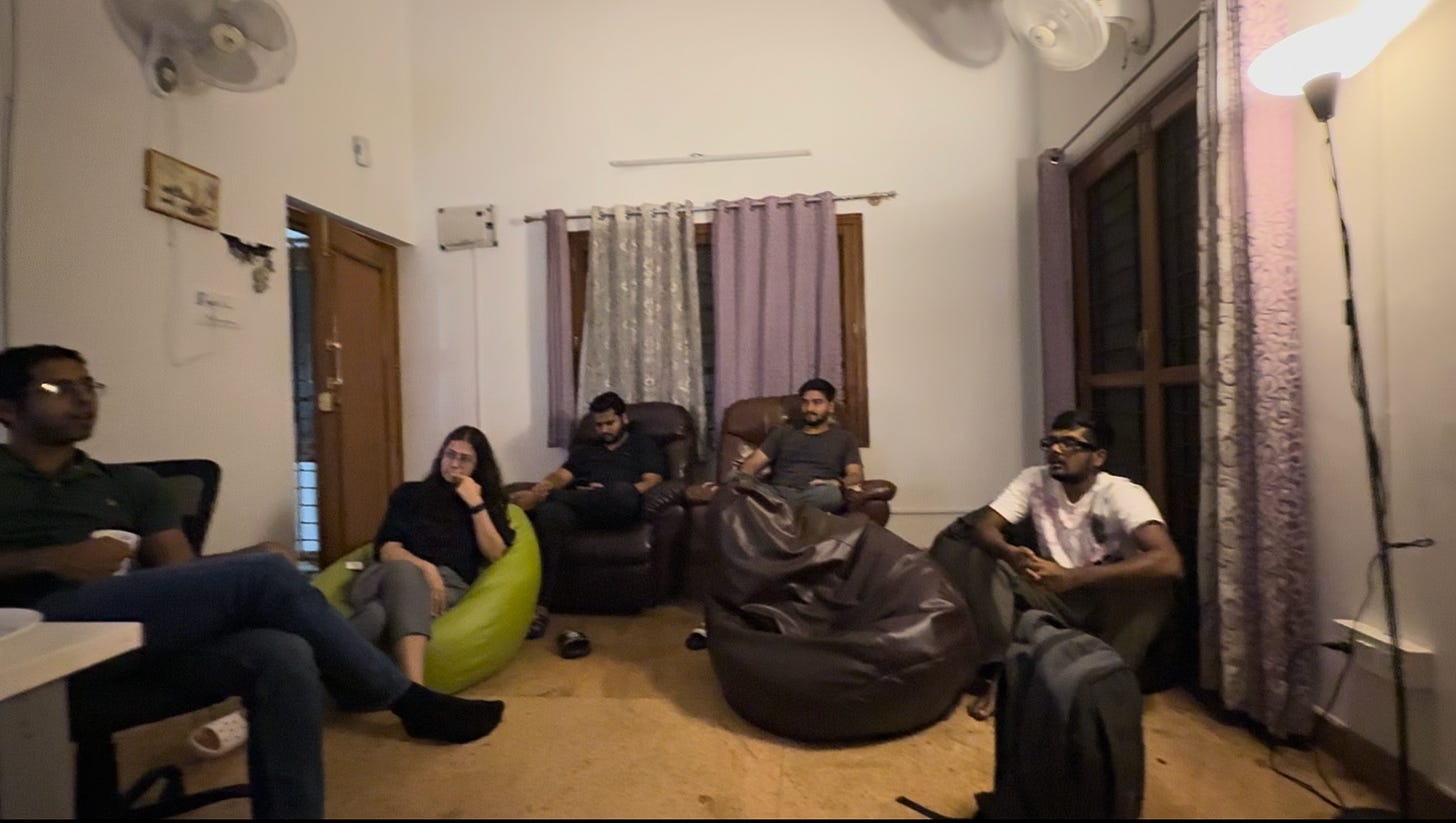
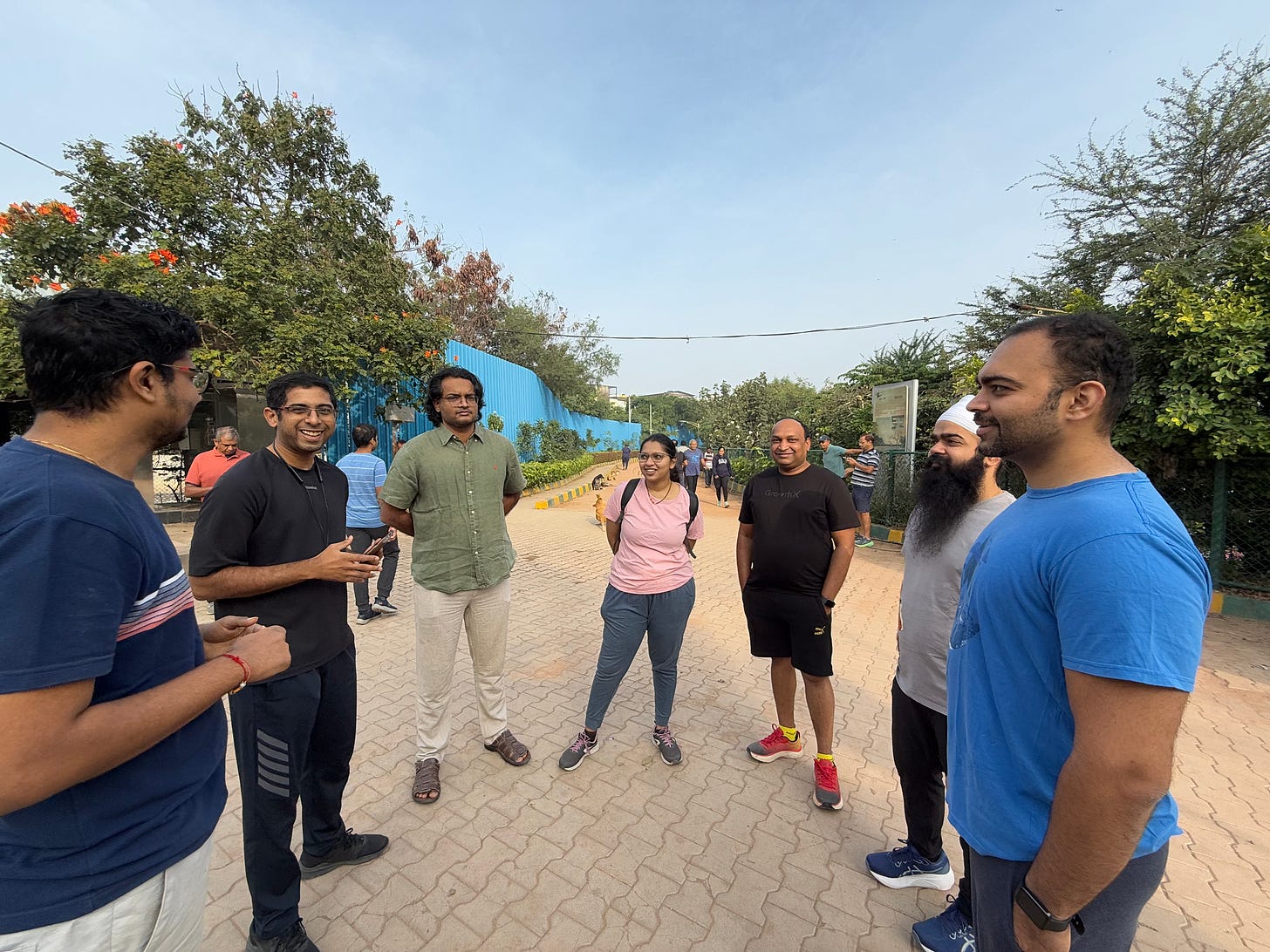
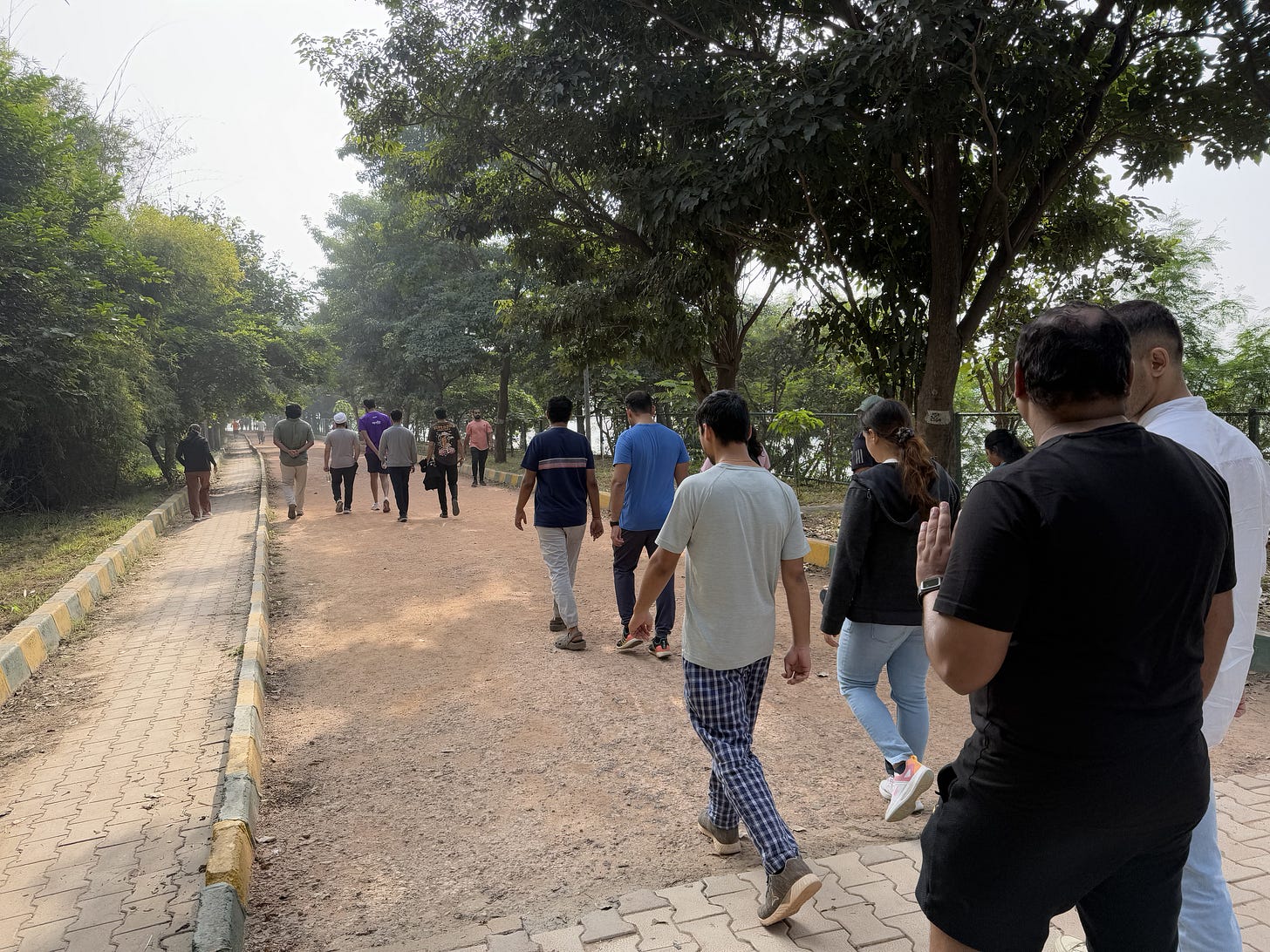
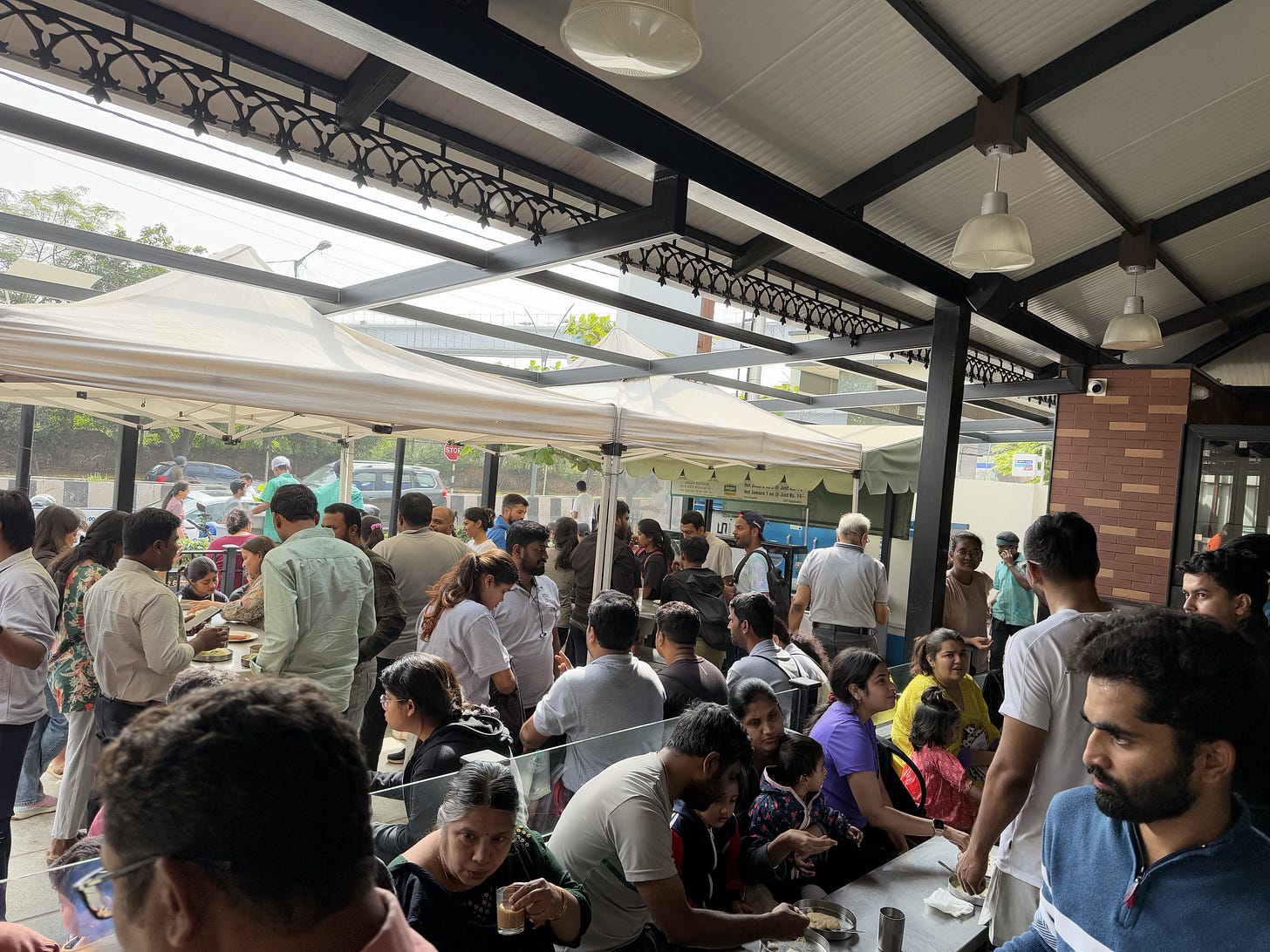
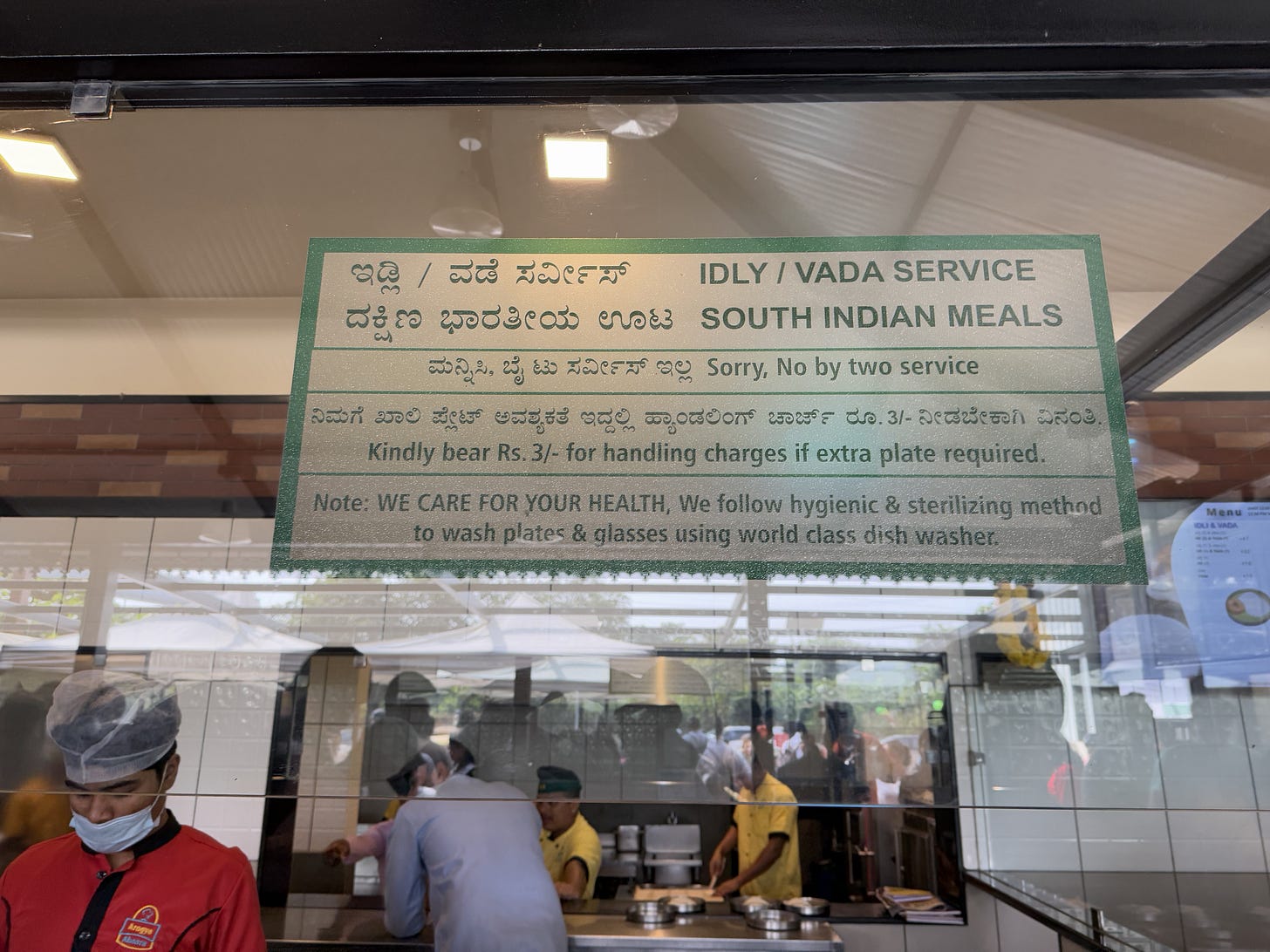
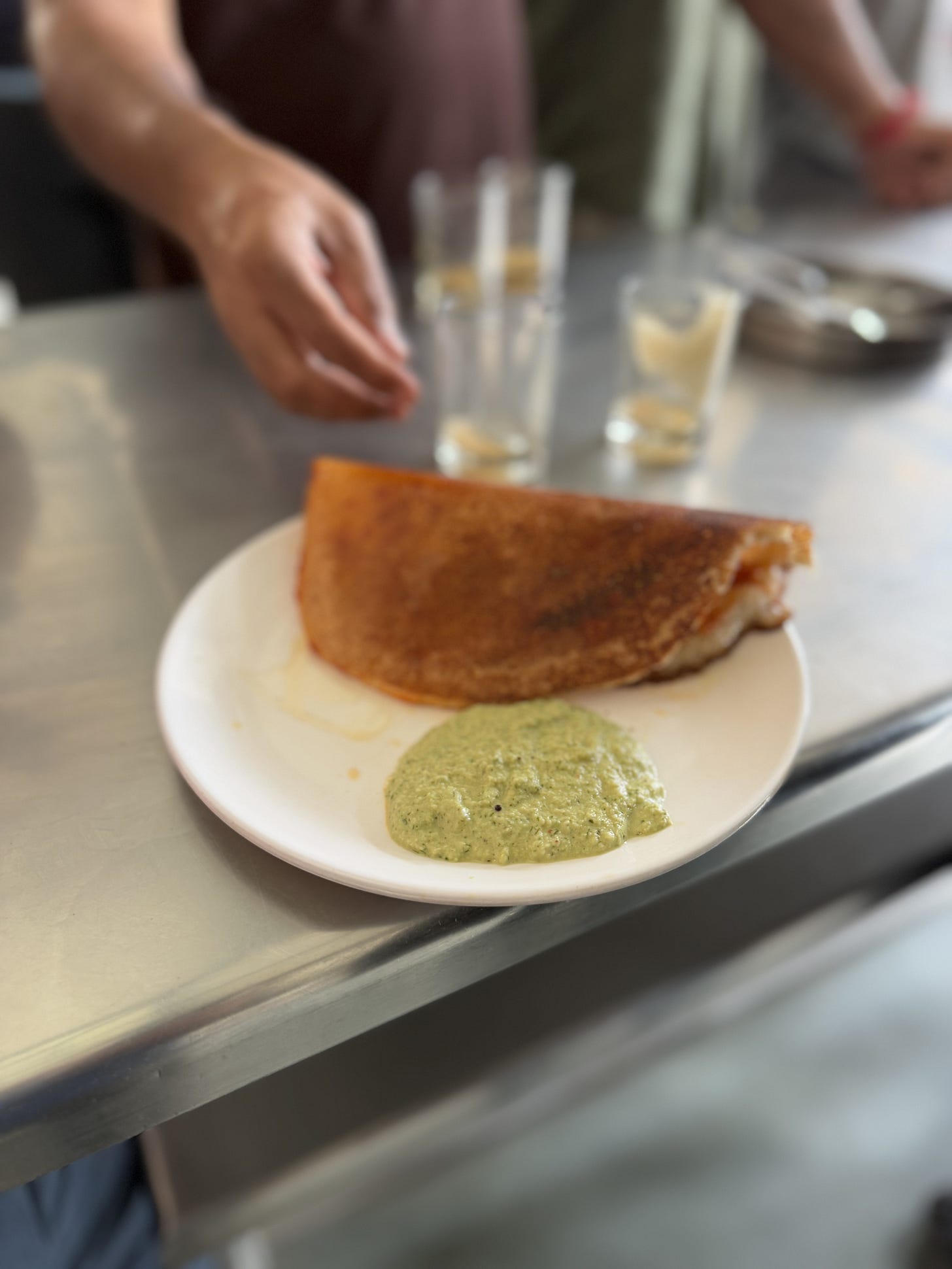
It was great meeting you Ash! Until next time!